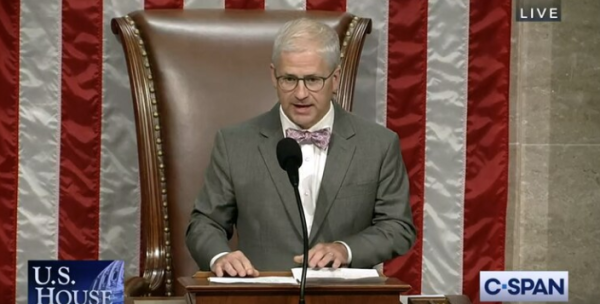
With an hourly labor cost of 15.7 euros, Greece ranks among the European countries included in the second “cheapest” tier in the EU27, placing it significantly lower (23rd) than the bloc’s average of 24 euros per hour, according to figures released by Europe’s statistical authority, Eurostat.
The average hourly labor cost in the economy was calculated at 31.8 in the EU and 35.6 euros in the Eurozone for 2023, compared to 30.2 euros and 34.0 euros respectively in 2022, as the data shows.

In contrast, the countries that posted the highest hourly labor costs are Luxembourg (53.9 euros), Norway (51.9 euros), Iceland (49.7 euros), and Belgium (47.1 euros), exceeding the EU 45-euro average, while on the lower end countries with costs below 15 euros are Bulgaria (9.3 euros), Romania (11 euros), and Hungary (12.8 euros).
In 2023 compared to 2022, the hourly labor cost in terms of the overall economy, expressed in euros, increased by 5.3% in the EU and by 4.8% in the eurozone.
Within the eurozone, the hourly labor cost increased in all countries. The largest increases were recorded in Croatia (+14.2%), Lithuania (+12.4%), and Estonia (+11.7%).
For EU countries outside the common currency bloc, the eurozone, the hourly labor cost expressed in national currencies increased in 2023 in all countries, with the largest increases recorded in Hungary (+17.0%), Romania (+16.5%), Bulgaria (+14.0%), and Poland (+12.4%).
The two main components included in the measurement of labor costs are wages and non-wage costs (e.g., employer social contributions). The share of non-wage costs in the total labor cost for the entire economy was 24.7% in the EU and 25.5% in the eurozone.
Source: tovima.com
Latest News

Airbnb: Greece’s Short-Term Rentals Dip in March Amid Easter Shift
Data from analytics firm AirDNA shows that average occupancy for short-term rentals dropped to 45% in March, down from 49% the same month last year.

Easter Week in Greece: Holy Friday in Orthodoxy Today
At the Vespers service on Friday evening the image of Christ is removed from the Cross and wrapped in a white cloth

Meloni and Trump Meet in Washington, Vow to Strengthen Western Ties
“I am 100% sure there will be no problems reaching a deal on tariffs with the EU—none whatsoever,” Trump stressed.

ECB Cuts Interest Rates by 25 Basis Points in Expected Move
The ECB’s Governing Council opted to lower the deposit facility rate—the benchmark for signaling monetary policy direction—citing an updated assessment of inflation prospects, the dynamics of underlying inflation, and the strength of monetary policy transmission.

Current Account Deficit Fell by €573.2ml Feb. 2025: BoG
The improvement of Greece’s current account was mainly attributed to a more robust balance of goods and, to a lesser extent, an improved primary income account

Hellenic Food Authority Issues Food Safety Tips for Easter
Food safety tips on how to make sure your lamb has been properly inspected and your eggs stay fresh.

Greek Kiwifruit Exports Smash 200,000-Ton Mark, Setting New Record
According to data by the Association of Greek Fruit, Vegetable and Juice Exporters, Incofruit Hellas, between September 1, 2024, and April 17, 2025, kiwifruit exports increased by 14.2%.

Easter Tourism Boom: Greece Sees 18.3% Surge in Hotel Bookings
Among foreign markets, Israel has emerged as the biggest growth driver, with hotel bookings more than doubling—up 178.5% year-on-year.

Greece to Launch Fast-Track Tender for Offshore Hydrocarbon Exploration
Last week, Papastavrou signed the acceptance of interest for the two Cretan blocks, while similar decisions regarding the two Ionian Sea blocks were signed by his predecessor

American-Hellenic Chamber of Commerce to Open Washington D.C. Branch
AmCham's new office aims aims to deepen U.S.-Greece economic ties and promote investment and innovation between the two countries







![Πλημμύρες: Σημειώθηκαν σε επίπεδα ρεκόρ στην Ευρώπη το 2024 [γράφημα]](https://www.ot.gr/wp-content/uploads/2025/04/FLOOD_HUNGRY-90x90.jpg)




![Airbnb: Πτωτικά κινήθηκε η ζήτηση τον Μάρτιο – Τι δείχνουν τα στοιχεία [γράφημα]](https://www.ot.gr/wp-content/uploads/2024/07/airbnb-gba8e58468_1280-1-90x90.jpg)

























![Airbnb: Πτωτικά κινήθηκε η ζήτηση τον Μάρτιο – Τι δείχνουν τα στοιχεία [γράφημα]](https://www.ot.gr/wp-content/uploads/2024/07/airbnb-gba8e58468_1280-1-600x500.jpg)


 Αριθμός Πιστοποίησης
Αριθμός Πιστοποίησης